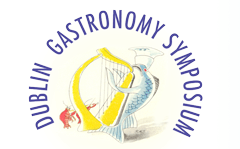Start Date
28-5-2024 4:00 PM
End Date
28-5-2024 4:15 PM
Description
In 2017, Marije Vogelzang's interactive performance at the Museum of Rotterdam, 'Black Confectti', was designed to enable the experience of a difficult wartime past. Using authentic recipes from the war press, she prepared dishes based on the creativity of the crisis. In the face of starvation and the struggle for life, the selflessness of creative action in the kitchen and the effort of documentation in the form of recipes from the past and culinary fantasies from the past proved to be a helpful tool for surviving the most oppressive situation. The effectiveness of this strategy is clearly demonstrated not only by the 'Hunger Winter' in the Netherlands, but also by the attitude of the women in the Terezín labor camp, Arte culinaria – a cookbook written by Giuseppe Chioni, who was exhausted by hunger in a prisoner of war camp in Hannover and other examples that show that in times of oppression cooking becomes more than a mere act of nourishment. Food, which is one of the basic mechanisms for maintaining identity, which at the same time gives us a sense of continuity and funds an elementary sense of security, has naturally become one of the elements of a survival strategy. It becomes a form of resistance, a way of preserving culture and identity, and a source of solace.
Creative Commons License

This work is licensed under a Creative Commons Attribution-NonCommercial-Share Alike 4.0 International License.
DOI
https://doi.org/10.21427/9k03-0488
Included in
European History Commons, Food Studies Commons, Holocaust and Genocide Studies Commons, Interactive Arts Commons, Interdisciplinary Arts and Media Commons, Interpersonal and Small Group Communication Commons, Jewish Studies Commons, Other Arts and Humanities Commons, Other Languages, Societies, and Cultures Commons, Other Theatre and Performance Studies Commons, Sociology of Culture Commons, Women's History Commons
Cooking in Times of Oppression
In 2017, Marije Vogelzang's interactive performance at the Museum of Rotterdam, 'Black Confectti', was designed to enable the experience of a difficult wartime past. Using authentic recipes from the war press, she prepared dishes based on the creativity of the crisis. In the face of starvation and the struggle for life, the selflessness of creative action in the kitchen and the effort of documentation in the form of recipes from the past and culinary fantasies from the past proved to be a helpful tool for surviving the most oppressive situation. The effectiveness of this strategy is clearly demonstrated not only by the 'Hunger Winter' in the Netherlands, but also by the attitude of the women in the Terezín labor camp, Arte culinaria – a cookbook written by Giuseppe Chioni, who was exhausted by hunger in a prisoner of war camp in Hannover and other examples that show that in times of oppression cooking becomes more than a mere act of nourishment. Food, which is one of the basic mechanisms for maintaining identity, which at the same time gives us a sense of continuity and funds an elementary sense of security, has naturally become one of the elements of a survival strategy. It becomes a form of resistance, a way of preserving culture and identity, and a source of solace.
